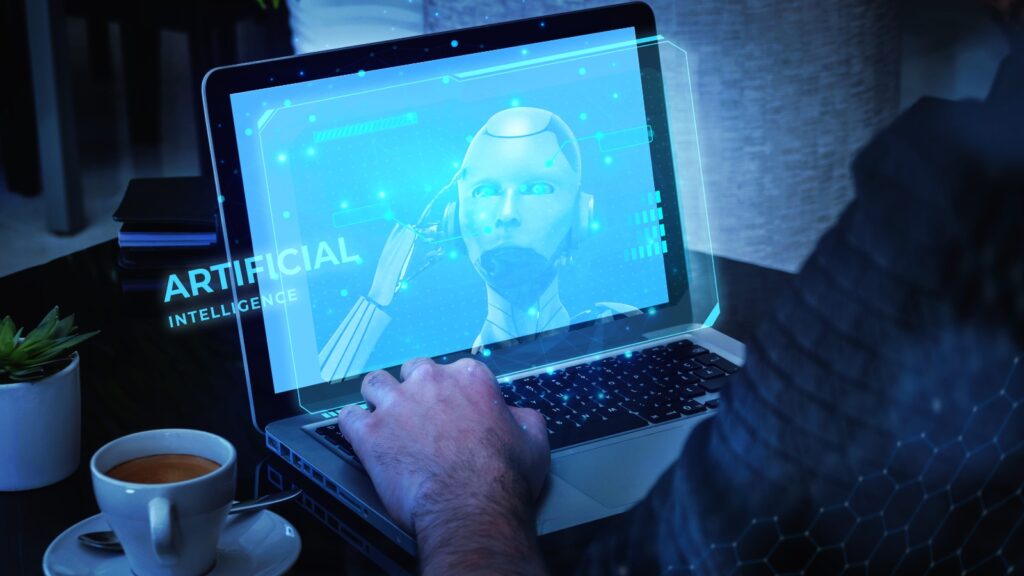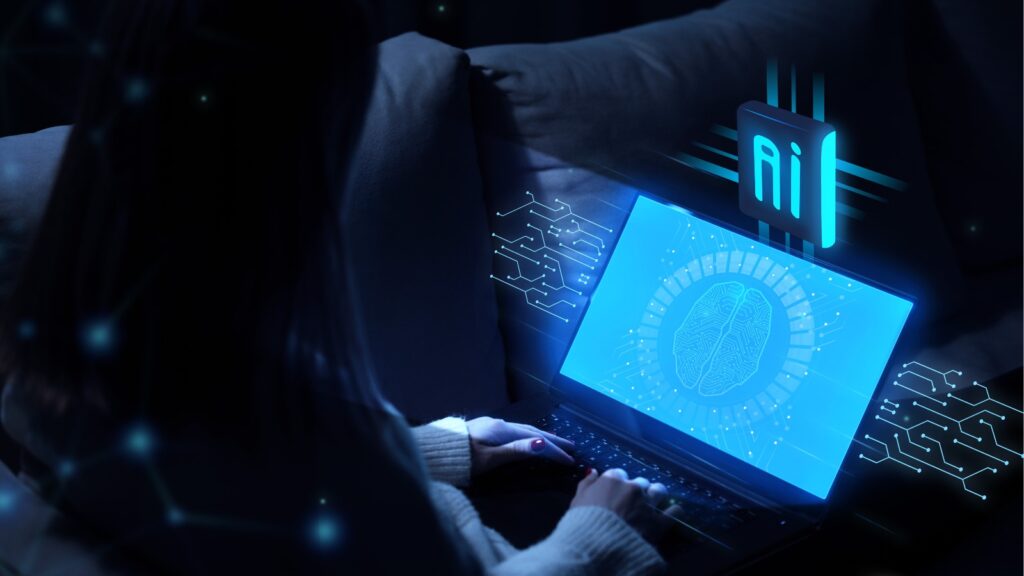Within the ever-changing world of cybersecurity, AI has emerged as an effective device for detecting threats, responding to incidents, and studying protection. However, as AI becomes more integrated into cybersecurity practices, it brings about a spread of worries regarding bias, privacy, and duty. On this complete exploration, we’re able to delve into the multifaceted role of AI in cybersecurity while also addressing those critical troubles.

Introduction to Role of AI in Cybersecurity
Synthetic intelligence has converted the techniques of agencies toward cybersecurity. Through studying large volumes of statistics, recognizing styles, and pinpointing anomalies, AI has emerged as a vital tool in fighting cyber threats. AI-driven solutions offer unmatched capabilities in defensive virtual belongings and exclusive facts, ranging from malware identity to person conduct evaluation.
offers a sizeable advantage with its sophisticated chance detection skills. Conventional safety strategies regularly face challenges in preserving the changing risk environment, while AI algorithms can directly analyze statistics, discover rising threats, and react hastily to reduce risks. This proactive safety method permits corporations to outsmart cybercriminals.
moreover, the utilization of AI-powered automation optimizes incident reaction methods, resulting in shorter reaction intervals and mitigating the consequences of protection breaches. Through the automation of repetitive duties and workflows, cybersecurity teams can allocate their resources toward extra strategic endeavors, thereby improving basic efficiency and effectiveness.
furthermore, threat assessment tools powered via AI provide actionable insights to corporations, allowing them to tackle safety vulnerabilities proactively. Through analyzing past information and figuring out capability dangers, AI assists businesses in prioritizing security measures and efficiently allocating sources. As a result, the opportunity for successful cyberattacks has drastically faded.
Addressing Bias in AI

Moreover, threat assessment gear powered via AI provides actionable insights to groups, enabling them to address protection vulnerabilities proactively. By studying beyond records and figuring out capability risks, AI assists corporations in prioritizing security features and successfully allocating resources. As a result, the probability of a cyberattack has extensively dwindled.
To address bias in AI, cybersecurity professionals should give the utmost importance to variety and inclusivity at some point in the method of record collection and version training. By guaranteeing that AI algorithms are trained on a huge range of datasets that should replicate the target population, groups can successfully decrease the capability bias of their AI systems.
Moreover, non-stop tracking and validation of AI systems can assist in detecting and addressing bias before it results in dangerous results. Through consistent assessment of the effectiveness of AI algorithms and making essential adjustments, companies can guarantee that their cybersecurity measures are equitable, transparent, and green.
Protecting Privateness
One foremost issue related to the utilization of AI in cybersecurity is the possible violation of individual privacy rights. The analysis of large amounts of personal information through AI algorithms to come across safety threats raises issues regarding privacy and consent. As agencies acquire and study gradually larger datasets for cybersecurity objectives, it is essential to uphold the privacy rights of people and cling to applicable rules and standards to ensure compliance.
To maintain privacy standards, companies want to establish sturdy information protection protocols, that embody encryption, anonymization, and access controls. Through the implementation of those protocols, businesses can effectively lessen the probability of unauthorized right of entry to sensitive statistics and safeguard the privacy of individuals whose facts are being analyzed by using AI algorithms.
Corporations have to prioritize transparency and accountability in AI-pushed cybersecurity efforts to shield privacy. They should brazenly speak with individuals about the collection and utilization of personal facts for cybersecurity motives, genuinely outlining how the information may be applied and for what objectives. Furthermore, agencies have to take responsibility for their statistics management procedures, making sure they adhere to applicable laws, rules, and industry norms.
Ensuring Accountability
As the use of AI in cybersecurity operations continues to grow, it is vital to prioritize accountability for AI-driven choices. Organizations must establish nicely defined protocols for AI governance, outlining the jobs and responsibilities involved in monitoring and evaluating the overall performance of AI structures. By implementing strong governance frameworks, corporations can guarantee that AI systems operate with ethical requirements and excessive effectiveness, reducing the ability for unintended effects or unfavorable results.
In addition, cybersecurity experts must acquire the proper training to recognize the constraints of AI and interpret its results. By promoting a sense of responsibility, groups can efficiently lessen the dangers connected to AI-driven cybersecurity solutions and preserve the self-assurance of their safety protocols.

Conclusion
The significance of AI in cybersecurity cannot be overstated, offering extraordinary capabilities in detecting threats, responding to incidents, and evaluating risks. Nonetheless, as groups undertake AI-powered equipment, they need to be proactive in tackling bias, safeguarding privacy, and upholding accountability. With the aid of giving due importance to those troubles, agencies can completely leverage the abilities of AI while upholding the consideration and self-assurance of stakeholders.
To summarize, the incorporation of AI into cybersecurity strategies marks remarkable progress in fighting cyber risks. However, it is essential to well know the moral, legal, and societal consequences of AI in cybersecurity to ensure that AI-powered solutions are impartial, transparent, and green. By tackling bias, safeguarding privateness, and organizing responsibility, groups can use AI to reinforce their cybersecurity stance while upholding ethical norms and honoring character rights.
